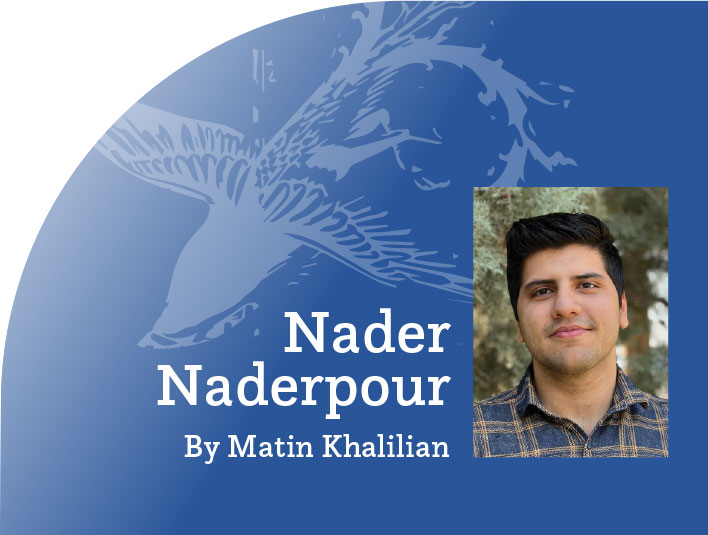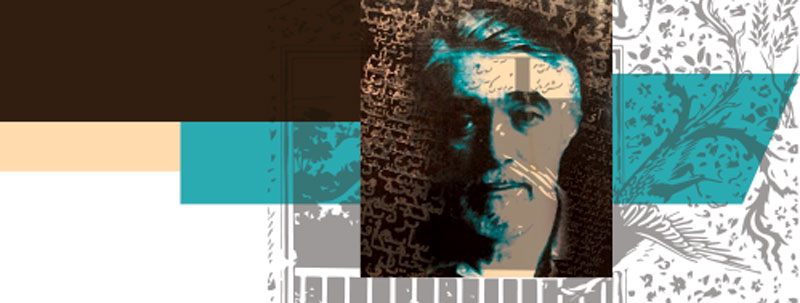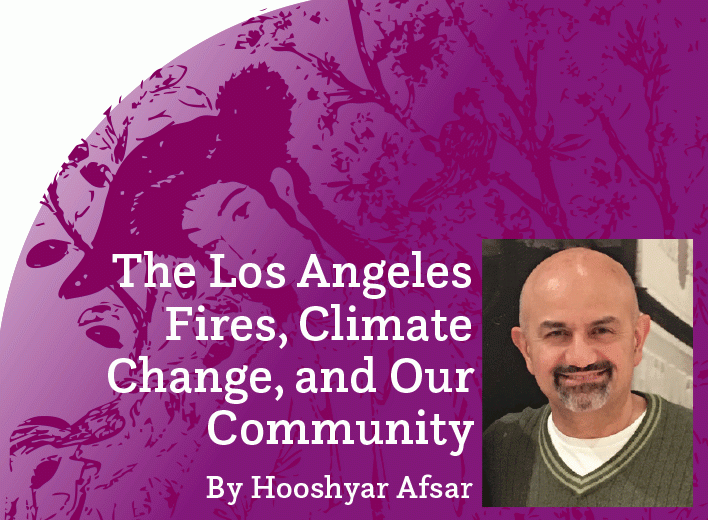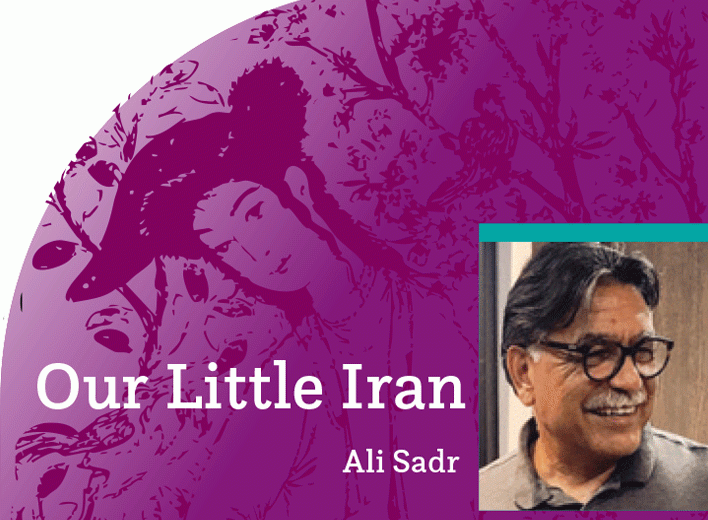Nader Naderpour
By Matin Khalilian
 Nader Naderpour (1929-2000) is an unforgettable name in modern Persian literature. After graduating with a Bachelor of the Arts in French Literature at Sorbonne University, he returned to Iran. Naderpour utilized his knowledge of French literature to establish novel themes and motifs in his poetry, thereby making significant contributions to the development of modern Persian literature. After the Islamic Revolution in 1979, Naderpour immigrated to the United States and took residence in Los Angeles, where he remained until his demise.
Nader Naderpour (1929-2000) is an unforgettable name in modern Persian literature. After graduating with a Bachelor of the Arts in French Literature at Sorbonne University, he returned to Iran. Naderpour utilized his knowledge of French literature to establish novel themes and motifs in his poetry, thereby making significant contributions to the development of modern Persian literature. After the Islamic Revolution in 1979, Naderpour immigrated to the United States and took residence in Los Angeles, where he remained until his demise.
Some literary figures, including Yadollah Royaee, have labeled Naderpour a romantic poet, most likely due to some romantic elements in his poetry, such as emphasis on individuality and human emotions. However, using the words Romantic and Romanticism to describe Naderpour and his poetry isn’t entirely accurate. Not only does it overlook the modern ideas that permeate Naderpour’s poetry, but it also ignores the unique qualities of Romanticism, a movement which arose in Western art circles more than a century prior to Naderpour’s period of activity as a result of a specific set of historical and social conditions present in Europe at the end of the eighteenth century. Unfortunately, this moniker, which held negative connotations by that time due to denigration of Victorian and Modern critics, exposed Naderpour to an onslaught of frank and widespread criticism from his contemporaries, especially traditionalists and left-wing poets. For instance, Forough Farrokhzad delivered this pointed criticism: “Naderpour’s poetry is completely devoid of content. He is a skilled illustrator, but the pictures he creates have nothing to say.” (Talaye Publications, Introduction to Diwan of Forough Farrokhzad’s Poems)
The inspiration Naderpour drew from French literature did not prevent him from demonstrating originality while simultaneously building upon the thousand-year heritage of Persian literature. Even in the few poems that he translated from French to Persian, he strove to create adaptations that could stand independently without the need to be placed alongside the original poem. For example, the poem Bagh (in English, Garden), which is an adaptation of a Jacques Prévert poem of the same name (in French, Jardin), is considered to be one of the most memorable Persian-language poems from the 1950s.
The poem Bot Tarash (in English, The Idol Maker) is a prime example of Naderpour’s fusion between traditional Persian poetical form and Western literary ideas. Although the poem is clearly inspired by the Greek myth Pygmalion, Naderpour lends it a personal touch, expressed in predominantly oriental language, and written in a classical form of Persian poetry. The result is an independent artistic work, readily distinguishable from verbatim translations of the Pygmalion legend and other works inspired by the same. Naderpour intertwines romantic and psychological themes, incorporating ideas from Freud and other Western theorists, to create a sinister, but relatable love song which transcends the constraints of a specific language or culture.
The Idol Maker
I am the old sculptor and with the chisel of thought
One night I crafted you from poetry’s marble block
To bestow your eyes with luster, I set them with gems
From the thousand jet-black eyes of which I’ve taken stock
Upon your form and the pristine aura it exudes
I poured the moon’s sparkling wine to wash its surface clean
In order to protect you from the evil eye’s glare
I stole you away, kept you from jealous eyes unseen
To endow your shape with all the more radiant charm
I outstretched my supplicating hands both near and far
I took a gentle curve from each lady’s silhouette
I stole a graceful move from each dancer’s repertoire
But you, as an idol, pay your maker no regard
You cast me down upon the ground, prostrate at your feet
Drunk on the wine of pride with no sympathy for me
It seems you have scorned your creator in your conceit
Beware! For behind the veil of this needy façade
This idol maker’s closed eyes hide his capricious fits
One night, when the wrath of my love has driven me mad
The shadows may witness that I have smashed you to bits
Nader Naderpour
Co-Translation by Matin Khalilian and Keith Thomas
Matin Khalilian is an aspiring poet and literature major at the University of Isfahan. He enjoys gathering inspiration from diverse cultures to enrich his own poetry. Through his translations, he strives to introduce international readers to lesser-known masterpieces of Persian literature and render modern English-language classics in his native Farsi. His noteworthy work can be read in Perspectives and Peyk Magazine, but anyone who doesn’t mind a bit of archaism and some bad puns can reach out to him personally at matinekhalilian@gmail.com.



















